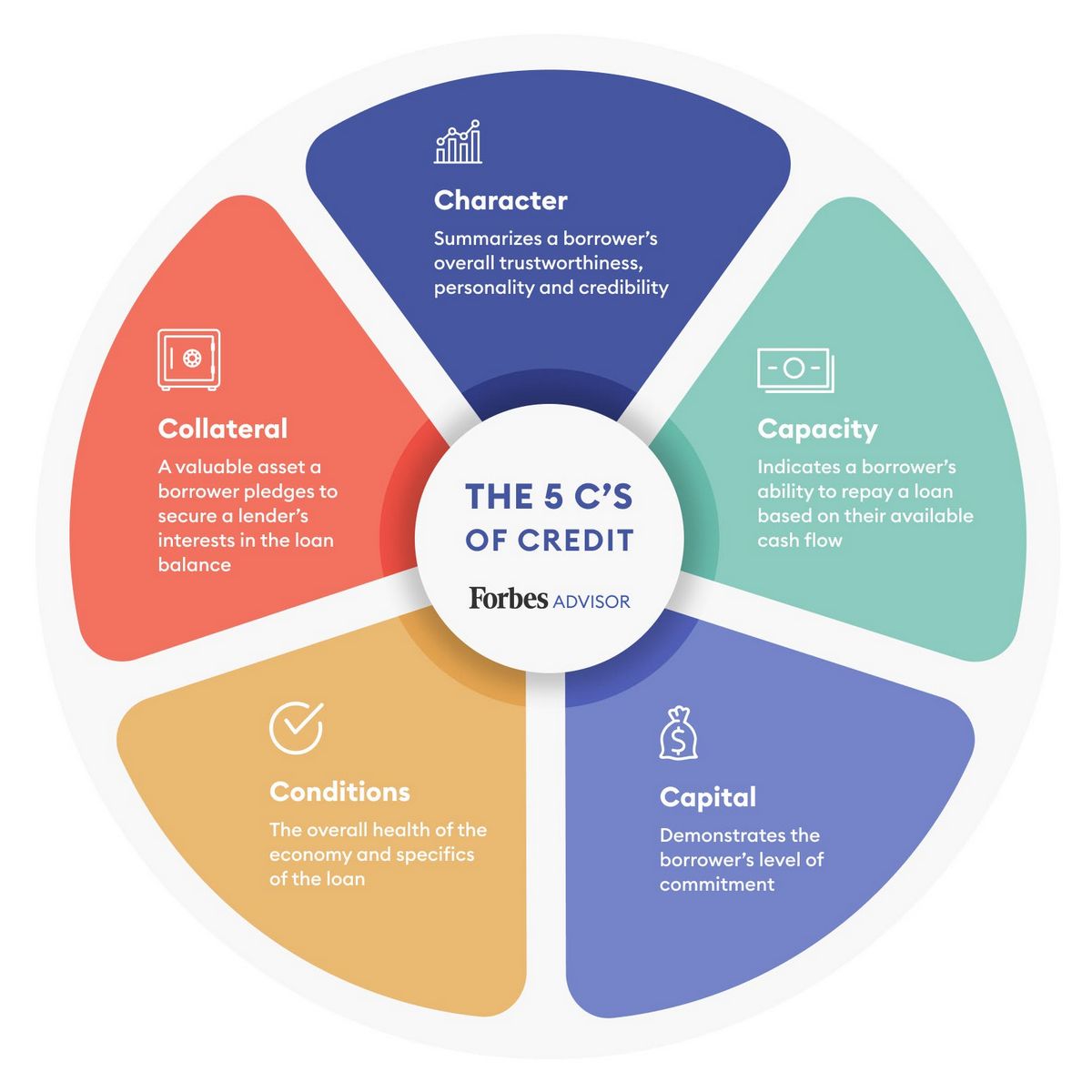
The Five C’s for Making Your Business Credit-Worthy
There comes a time when every business must secure financing to cover their needs. Whether it’s to buy new equipment, purchase land, improve an existing location, or give your business breathing room, a loan can mean the difference between success and falling behind your competitors. Unfortunately, finance can be tricky, especially for business loans. Knowing what lenders consider can mean acceptance or rejection.
From the lender’s perspective, there are five major elements they consider when evaluating a business for a loan. Commonly referred to as the “Five C’s,” lenders strive to get a complete picture of the health, potential, and credibility of a business before approving a loan.
The Five C’s are:
1. Character
The borrower must demonstrate strength of character by producing a sound credit report with limited negative marks and a steady payment history. Understand your credit report, including the data, before applying for a loan. Take all financial obligations seriously because even the smallest issue can lead to rejection. Professional background and any lawsuits or bankruptcies should also be disclosed. The SBA considers additional character points like criminal background and legal status within the US.
2. Cash flow
There needs to be adequate cash flow to repay the loan and cover all other business and personal expenses. Startups, existing businesses, and projected growth all require a comfortable buffer between expenses and revenue. Have financial statements and understand them. If finances are not your strong suit, have someone on your team, like a CPA, who can handle this for you.
3. Collateral
Borrowers should offer assets as collateral for the loan. Business assets are considered first, but if those are insufficient, personal assets may also be considered. Remember that more than just the loan amount is at stake. Lenders will take a lien on the collateral, meaning they can seize it if the loan is not repaid.
4. Capitalization
This element includes all business resources, such as fixed assets, retained earnings, and owner’s equity (cash). Borrowed funds are not considered. Having cash and equity shows lenders that you are serious about your business and have a vested interest. If you aren’t invested, why should a lender be?
5. Conditions
Factors outside the business are also considered, including market conditions, competitors, and industry trends. Be prepared to show how you differentiate from competitors, how you will handle market fluctuations, and how you adapt to industry trends.
In conclusion, lenders assess everything they believe will affect your ability to repay the loan. Make sure all five C’s are in top shape before approaching a lender.
Hello!
I’m Andrew Brooks, a seasoned finance consultant from the USA and the mind behind phonenumber247.com.
My career is built on a foundation of helping individuals and businesses thrive financially in an ever-changing economic landscape. At phonenumber247.com, my aim is to demystify the complex world of finance, providing clear, actionable advice that can help you navigate your financial journey with confidence. Whether it’s personal finance management, investment strategies, or understanding the nuances of market dynamics, I’m here to share insights and tools that can propel you towards your financial goals.
Welcome to my digital space, where every piece of advice is a step closer to financial clarity and success!
